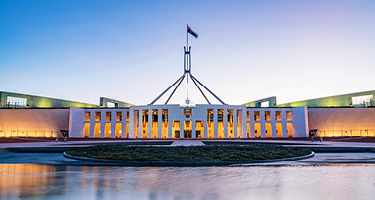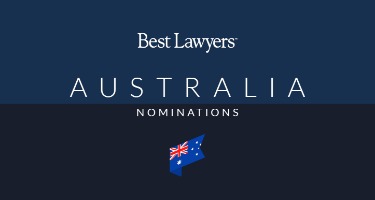Australia’s new whistleblowing regime was introduced to provide enhanced protections to those in the corporate sector who seek to inform others of malfeasance. It significantly expands the categories of individuals eligible to qualify as whistleblowers, the types of disclosures that will be protected, and the individuals and entities to whom disclosures can be made.
It’s critical for employers in Australia to be able to identify, at the outset, whether a complaint or disclosure will fall within the scope of the new regime. Mistakes at the beginning can create substantial difficulties and expose employers to potentially significant liability for even inadvertent noncompliance.
As yet , no case law in Australia has considered the new strictures. Australian whistleblowing laws, though, are a hybrid of the statutory regimes currently in place in the United Kingdom and the United States, so employers can draw some guidance from previous judgments there—particularly those in the U.K.
What should an employer be aware of when receiving information or a complaint?
At first glance, certain disclosures might not appear to be protected under whistleblowing laws, so determining their official status is critical. Where once employers might have been alert primarily to whether the complaint indicated bullying, harassment, or discrimination, they must now also consider whether it falls within the scope of the law. If it does, protecting the whistleblower’s identity is imperative—and innocently providing the complaint to an internal HR or investigative team might breach the legislation.
To determine whether certain information will constitute a protected disclosure, one must consider whether
- the individual who disclosed the information or made the complaint will be an eligible whistleblower;
- the type of information disclosed or complained about will be considered a protected disclosure;
and whether - the individual disclosed the information or made the complaint to a person eligible to receive that information.
Under Australian law, current and former employees, suppliers, or contractors, as well as the spouse or any family members of these individuals, may be considered whistleblowers. They will be legally protected if they have reasonable grounds to suspect that the information they’re disclosing concerns a regulated entity, or an officer or employee of a regulated entity, engaging in
- misconduct;
- an improper state of affairs or circumstances;
- conduct that is in breach of financial-sector laws;
- conduct that constitutes a Commonwealth offence punishable by 12 months’ imprisonment; or
- conduct that represents a danger to the public or financial system.
Given the broad range of concerns that may be disclosed, it is critical for employers to identify whether the information or complaint will fall into one of these categories. If an employee comments to a senior manager that his or her manager is bullying the team, for example, that employee could be regarded as a protected whistleblower.
To get a sense of the broad range of conduct that may be ensnared by whistleblowing laws, consider Elysium Healthcare No. 2 Ltd v. Ogunlami from the U.K. In this decision published in 2019 case, a healthcare assistant complained to his employer that his supervisor had been taking food from patients. The U.K.’s Employment Appeal Tribunal (EAT) had to consider whether this disclosure was protected. Whilst at first glance it might not seem to be, given that it concerns individual conduct rather than a more widespread problem, the EAT found that the assistant was indeed a protected whistleblower, on the basis that the disclosure indicated a breach of a legal obligation: the supervisor’s conditions of employment.
Under Australian law, current and former employees, suppliers, or contractors, as well as the spouse or any family members of these individuals, may be considered whistleblowers."
Factors employers should consider to ensure regime compliance
POLICIES
Employers in Australia that are classified as “large proprietary companies” under the regime are required to have a formal whistleblower policy, which must be made available to officers and employees and must outline the process by which the employer will investigate and deal with such disclosures. Even if such policies are not a formal legislative requirement, employers ought to maintain them to ensure that their workforce understands the appropriate means for making, and dealing with, complaints.
What are the risks of an employer unknowingly breaching whistleblowing protections? Consider, again from the U.K., Beatt v. Croydon Health Services NHS Trust, from 2017. Here, a cardiologist disclosed a number of things to his employer, including an assertion that the suspension of a nurse in his division directly contributed to the death of a patient. The employer considered the information to be vexatious and unsubstantiated, and the cardiologist was subsequently dismissed for serious misconduct on the grounds that he had made false accusations of poor patient safety against a coworker. The Court of Appeal held that the cardiologist had been unfairly terminated, contrary to whistleblowing protections— and, further, that he was dismissed because he had made what should have been protected disclosures. The court held that it did not matter that the employer genuinely believed both that the information wasn’t protected and that the cardiologist was making the accusation in bad faith.
TRAINING
Employers should also ensure that their workers, particularly those eligible to receive protected disclosures, complete whistleblower training that will enable them to identify the types of complaints and information that may be protected, and make them aware of the procedures they must follow in such instances.
When it’s not clear if a complaint or disclosed information will be protected, employers should seek legal advice to ensure that they remain compliant.
DLA Piper ’s employment team has extensive experience advising clients on the whistleblowing regimes in Australia and the U.K., as well as helping them deal with the relevant processes that must be followed upon receipt of a protected disclosure. Please reach out to our team to learn how we might be able to assist you.
Nicholas Turner has over 20 years’ experience working across Australia, Asia and London. He is qualified in both Australia and the United Kingdom and has particular expertise in financial services, life sciences and technology. Nicholas regularly advises clients on complex and sensitive investigations, terminations and compliance issues, as well as advising on the full range of employment matters and acting in employment litigation.
































